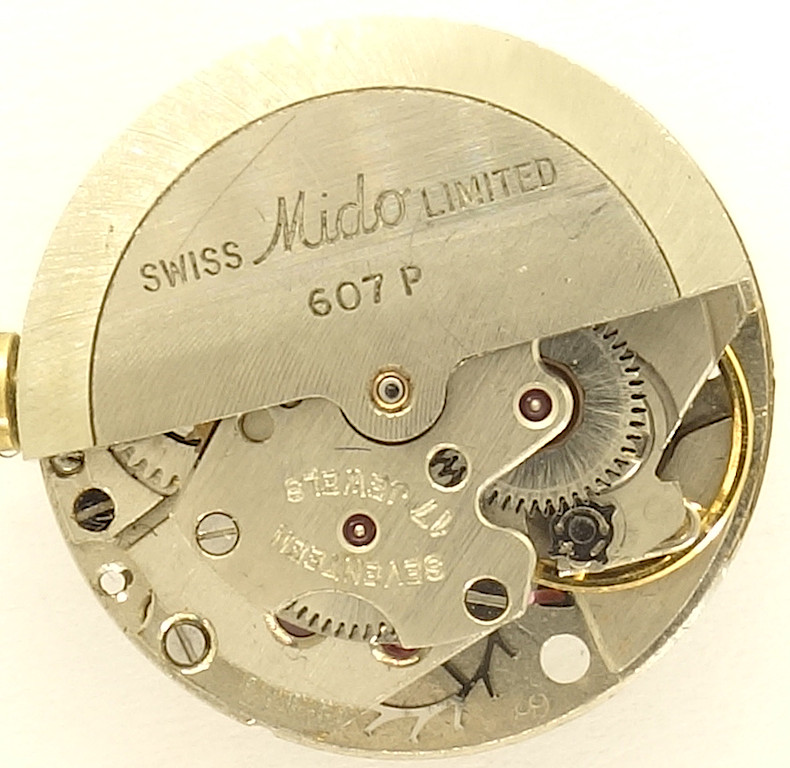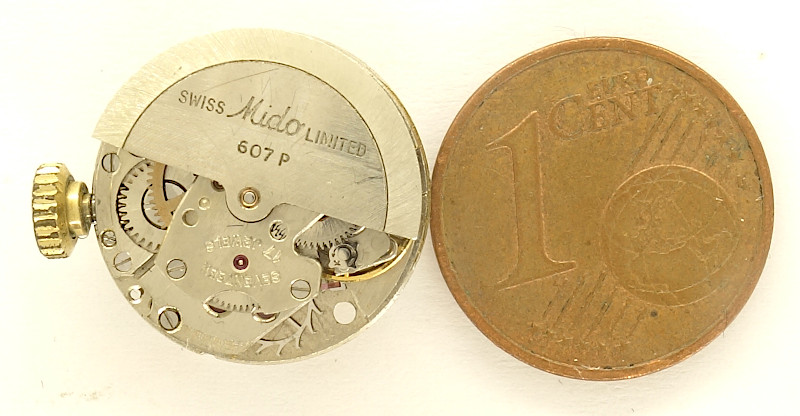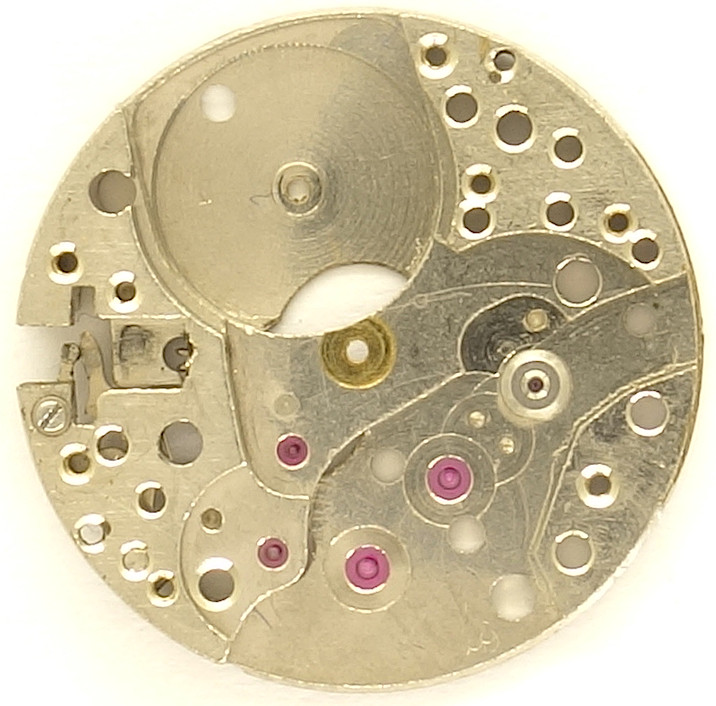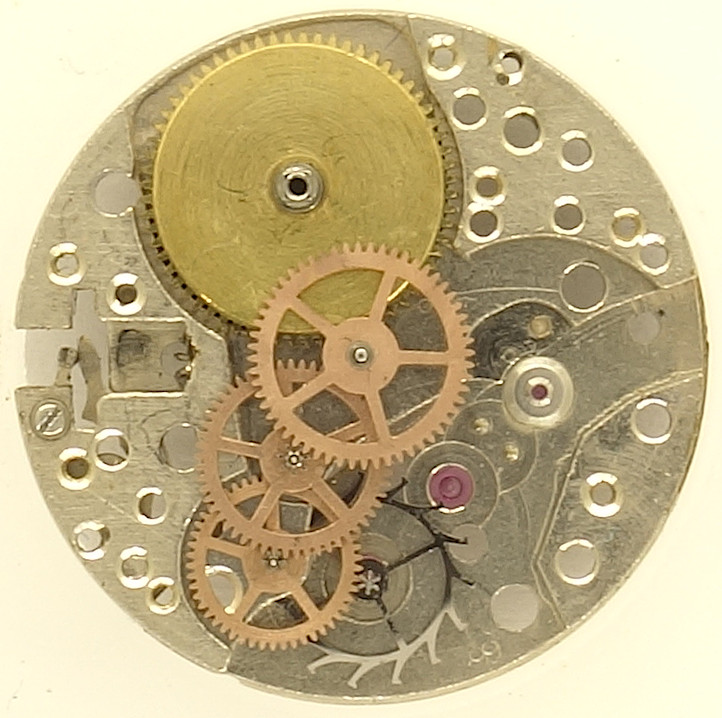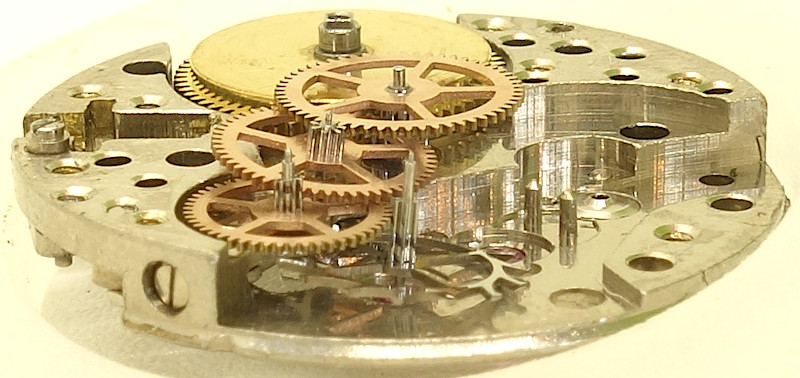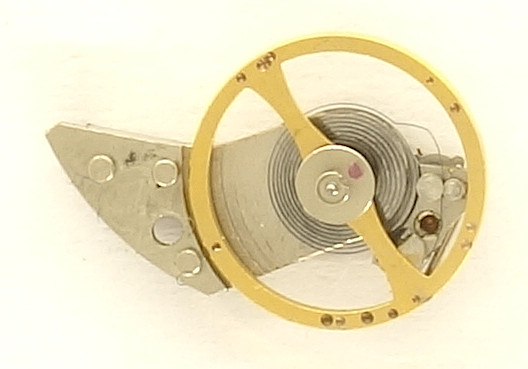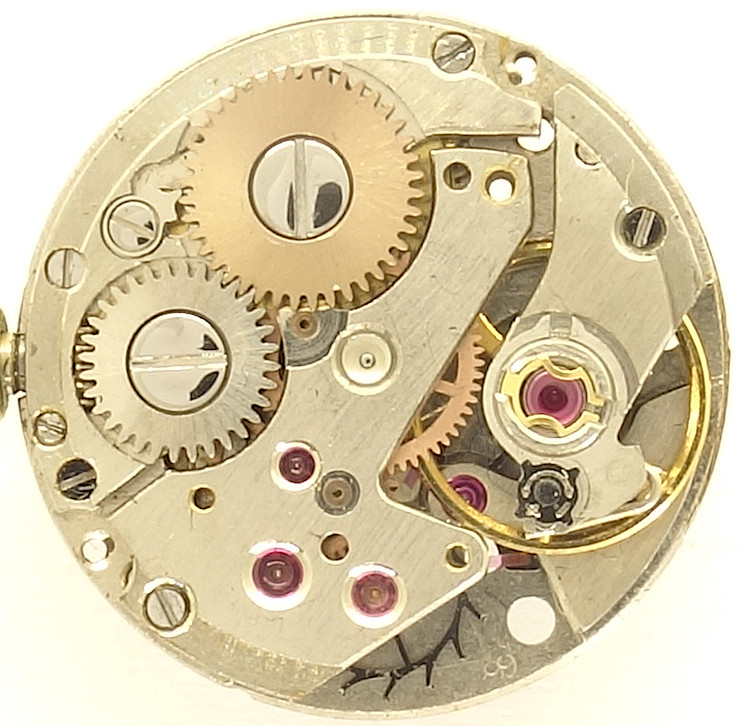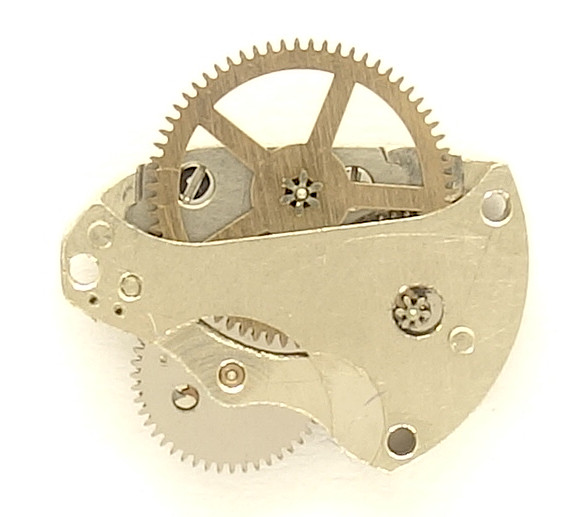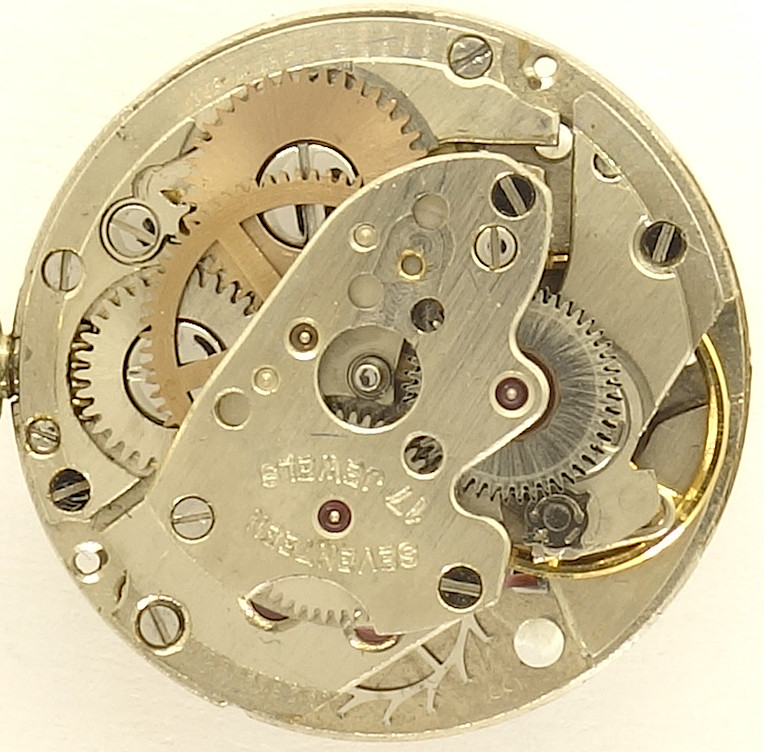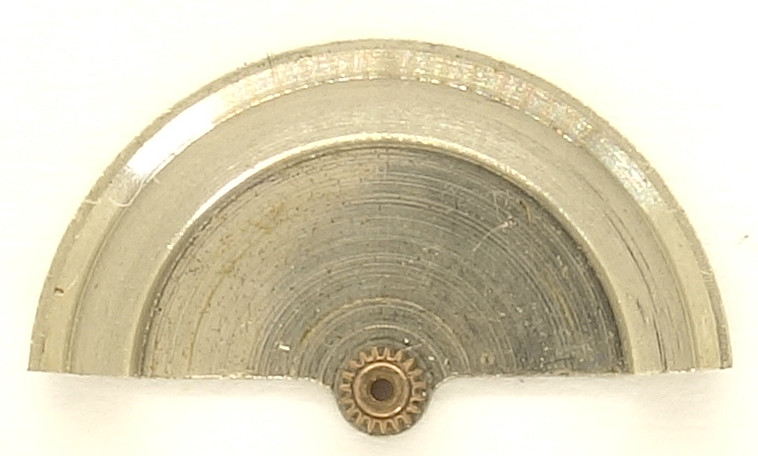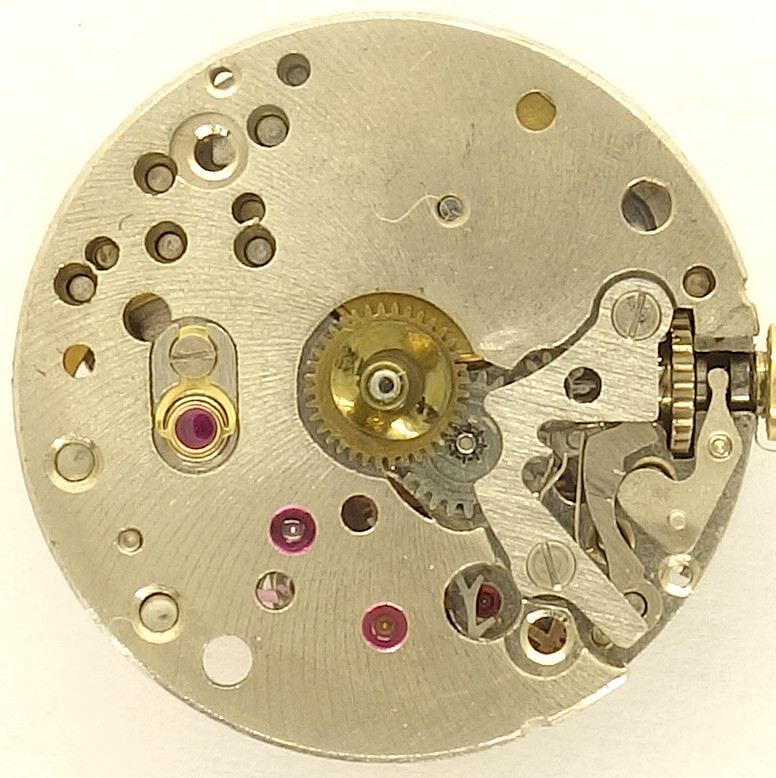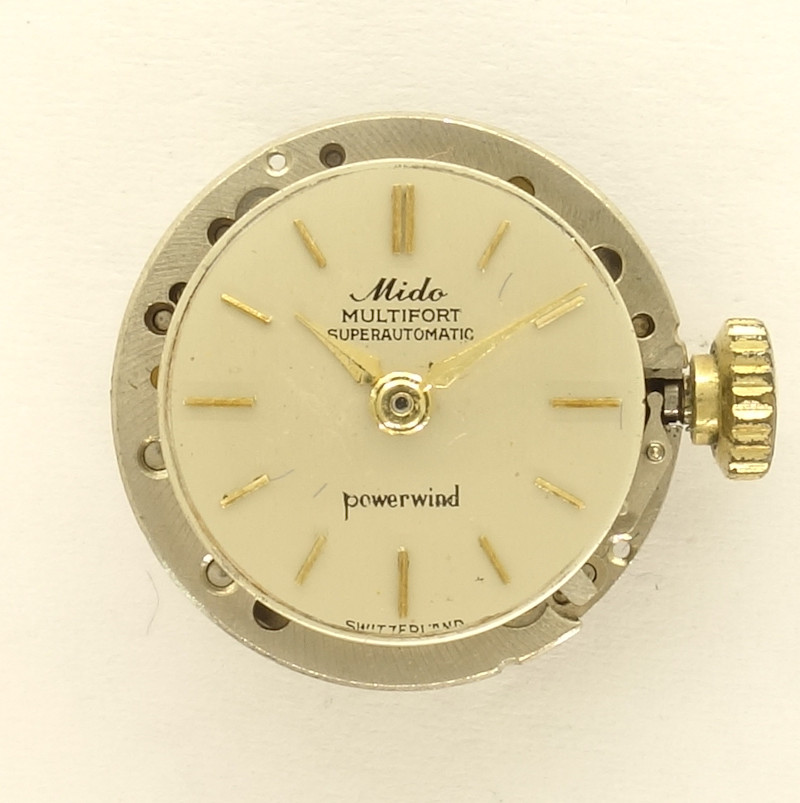Description
Smaller as an Euro-Cent coin is the Mido 607P, one of
the smallest selfwinding movements ever made.
Its diameter is only 6 3/4 lignes or 15.3mm.
This movement, probably launched around 1960, is not a true Mido inhouse movement, but bases on the ebauche AS 1477, bit was made exclusively for Mido and was reduced about a quarter ligne in diameter.
At this tiny size, it goes without saying that all important bearings are equipped with stones.
We have the classical gear train here, where the mainspring barrel drives the center minute wheel, followed by third wheel, seconds wheel and the relatively large steel escape wheel.
On this movement, there was no place for a center seconds indication, however the derivative caliber Mido 0617P offered a center seconds indication.
A speciality of this movement is the Incastar regulator:
On her, the effective length of the spiral is not adjusted by being more or less clamped between two regulator pins, but it is fixed between two rollers without play. By turning the outer roller, the length of the freely oscillating spiral can be adjusted to reach the still slow 18000 A/h as exactly, as possible.
The modern, screwless Glucydur balance is of course secured against shocks by two Incabloc bearings.
Without the attached automatic module, this movement looks almost like a standard windup movement, but you can already see the bearings for the gears of the automatic module.
The selfwinding module is extremely compact, it consists of two interconnected pawl changers (on bottom left yo can spot one one of the pawls) and a very large transmission wheel, because of which a further reduction wheel could be saved.
The axle-beared oscillating weight acts on the two upper wheels of the ratchet changer, depending on the direction of rotation of the rotor only one of the two two wheels transmits the power from the upper to the lower ratchet wheel, while the other ratchet wheel pair is in freewheel. This ensures that the transmission wheel is always moving in the same direction and always winds the mainspring.
On the dial side you can see the yoke winding system (here with a broken setting lever spring), as well as the flat incabloc bearing, which doesn’t have its iconc lyre shaped spring in this execution.
Unfortunately, such technical works of art are no longer valued today, so that the specimen shown here originates from a gold watch that has since been melted in, and because of her tiny size would probably never make it onto a wrist again. What a pity!
Technical data
| Manufacturer: | Mido |
| Caliber: | 607P |
| Caliber base: | AS 1477 |
| Size: | 6 3/4''' (measured: 15.3mm) |
| A/h: | 18000 |
| lift angle: | 52° |
| Number of jewels: | 17 |
| Escapement: | Pallet lever |
| Balance types: | Glucydur anular balance (two legs) |
| Shock protection(s): | Incabloc |
| Balance bearing / direction hairspring: | Clockwise |
| Moveable stud: | yes |
| Adjust mechanism: | Incastar |
| Construction: |
|
| Construction type: | solid construction |
| Winding mechanism: | yoke winding system |
| Setting lever spring: | 3 holes |
| Features: |
|
| References: | Ebauches: Band 1, Anhang Flume: 1962 82 |
| Mentioning in literature (years): | 1959 |
| Inventory number: | 22010 |
